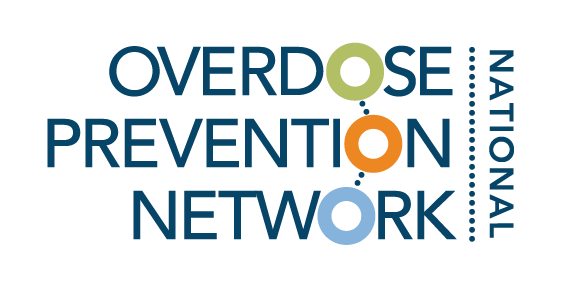
Resource Library
Toolkits, guides, and other resources vetted by experts in overdose prevention.
Filter by category and tags, or search by keyword (ex. COVID-19, harm reduction).
Harm Reduction Vending Machines: Consideration for Implementation
Harm reduction vending machines help reduce overdose deaths and promote better health and wellness for people experiencing homelessness who have substance use disorders or co-occurring disorders. This fact sheet introduces the evidence-based harm reduction vending machine model, explains how it supports overdose prevention strategies, outlines what supplies to include, and highlights key considerations for implementation.
Example Resource: El Dorado COPE Fillable Fact Sheet Template
The El Dorado Coalition for Overdose Prevention and Education created a template to be used for other overdose prevention coalitions to use for outlining the overdose crisis locally, their coalition's history, achievements, and ways for new members to get involved. This fact sheet can serve as an effective tool for communication and engagement with the community, coalition partners, and local decision-makers.
Example Resource: EL Dorado COPE Collaboration Agreement
Given the diversity of the El Dorado Coalition on Overdose Prevention and Education, developed a collaborative agreement. This is essential to ensure that every voice is heard and provides unity in their mission to save lives, despite differing opinions. This document can be used as an example to be adopted for your overdose prevention coalition.
Example Resource: El Dorado COPE Fact Sheet
The El Dorado Coalition for Overdose Prevention and Education (COPE) developed a comprehensive one-sheet fact sheet outlining the overdose crisis in El Dorado County, the coalition's history, achievements, and ways for new members to get involved. This fact sheet can be used as an example for your overdose prevention coalition and can serve as an effective tool for communication and engagement.
Example Resource: SLO Opioid Safety Coalition Organizational Structure Info Sheet
The SLO Opioid Safety Coalition created this organization structure info sheet for the community and members of their coalition. The info sheet provides a brief overview of the history and what the coalition is, the vision and mission statement, the coalition objectives and strategies, and the current membership. This resource can be used as an example to be adapted for your overdose prevention coalition.
Fact Sheet: The Impact of the Overdose Crisis on Latinx Communities in the United States
Drug overdoses have affected all communities across the United States. Yet there are notable racial and ethnic disparities that have emerged over the past 25 years, even though people of all races and ethnicities use drugs at similar rates. Racism, lack of access to treatment and services, targeted drug enforcement, and stigma are some of the most common factors contributing to these tragic losses in our communities. DPA has developed three new fact sheets that describe overdose death trends among Black, Latinx, and Native American communities. They also provide policy recommendations and strategies for how our elected officials can save lives.
Fact Sheet: The Impact of the Overdose Crisis on Black Communities in the United States
Drug overdoses have affected all communities across the United States. Yet there are notable racial and ethnic disparities that have emerged over the past 25 years, even though people of all races and ethnicities use drugs at similar rates. Racism, lack of access to treatment and services, targeted drug enforcement, and stigma are some of the most common factors contributing to these tragic losses in our communities. DPA has developed three new fact sheets that describe overdose death trends among Black, Latinx, and Native American communities. They also provide policy recommendations and strategies for how our elected officials can save lives.
Fact Sheet: The Impact of the Overdose Crisis on Native American Communities in the United States
Drug overdoses have affected all communities across the United States. Yet there are notable racial and ethnic disparities that have emerged over the past 25 years, even though people of all races and ethnicities use drugs at similar rates. Racism, lack of access to treatment and services, targeted drug enforcement, and stigma are some of the most common factors contributing to these tragic losses in our communities. DPA has developed three new fact sheets that describe overdose death trends among Black, Latinx, and Native American communities. They also provide policy recommendations and strategies for how our elected officials can save lives.
COPN Accelerator 4.0 Case Studies: Health Equity Strategies in Overdose Prevention
What steps can communities take to incorporate health equity in overdose prevention? The following summary provides concrete examples of thoughtful approaches to applying health equity in overdose prevention at the local level to address rising rates of overdose. Case studies were drawn from overdose prevention coalitions participating in the California Overdose Prevention Network (COPN) Accelerator 4.0 Program. These can serve as models for other coalitions and organizations across the country.
Naloxone Pocket Card Example
OD Free Marin provided their naloxone instructional pocket card PDF for other individuals to use as an example to adapt for local use.
Anti-Criminalization and Public Health Systems Factsheets
NASTAD, with consultant Reframe Health and Justice, created a three-part factsheet to provide information on the role of public health in addressing the impacts of criminalization and policing. The toolkit includes factsheet pages on Criminalization as a Determinant of Public Health, Abolition vs Reform, and Anti-Criminalization for Public Health Strategies.
Fact Sheet: California Law and Syringe Services Programs
This fact sheet reviews California Law as it relates to syringe services programs (SSPs). It overviews key takeaways on syringe possession, syringe distribution, other safer drug use materials distributed for public health purposes, and naloxone.
Issue Brief: Smoking Supplies for Harm Reduction
In this issue brief it reviews smoking supplies for harm reduction, California law, and evidence for providing safer smoking supplies to reduce drug-related harm.
Fact Sheet: Syringe Services Programs in California: An Overview
This fact sheet provides information on syringe services programs critical role in California's efforts to stop drug overdose deaths, prevention of transmission of other blood-borne diseases, and HIV infections.
CA Department of Public Health Xylazine Information Page
The California Department of Public Health provides an informational page on xylazine, a veterinary drug. Xylazine has been linked to an increasing number of overdose deaths nationwide.
Public Safety-Led Community-Oriented Overdose Prevention Efforts (PS-COPE) Concept Paper
This PS-COPE Concept Paper is a new approach to community-oriented overdose prevention and response in Black, Indigenous, and People of Color (BIPOC) Communities. It is a supplemental resource that describes the cross-cutting principles of trauma-informed, recovery-oriented, procedurally just and PS-COPE approaches, and how each of these frameworks brings unique value to working within BIPOC communities.
Trauma-Informed Approaches Toolkit
This toolkit is intended to provide foundational information, language, and an introduction to tools and assessments for agencies and providers, both those who provide direct services and funders.
A Game Changer for Street Medicine: Key Takeaways from New Medi-Cal Guidelines
This issue brief lays out the major implications of this new guidance, along with key issues that remain, and is designed for clinical professionals and others who operate street medicine programs or are interested in creating new programs.
What is fentanyl? Spanish PDF
This flyer created by Prescribe Safe Monterey County is translated into Spanish providing advice around fentanyl, its potency, and harm reduction safety tips.
Four Data Driven Harm Reduction Strategies in Overdose Prevention
What steps can communities take to engage youth in overdose prevention? The following summary provides concrete examples of data-driven strategies to address rising rates of overdose among youth. Case studies were drawn from overdose prevention coalitions participating in the California Overdose Prevention Network (COPN) Accelerator 3.0 Program. These can serve as models for other coalitions and organizations across the country.









